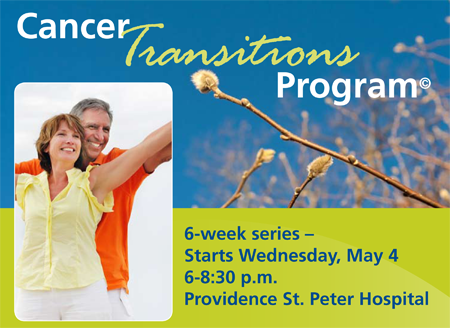Navigating the storm ... I'd like to help
My name is Pat. I am a nurse navigator for the Providence Southwest Region. I have never written on a blog before, so here goes.
As I have started into my new position I have had the urge to write about something that I thought I would never tell anyone, this secret I have carried with me for the past 16 years. I asked permission from my husband to share this.
Sixteen years ago I had an illness. I could not work. We went through financial devastation. I am writing about this because I know some of you are in a very hard place right now, and it helps to know that someone not only understands but also that someone has been there before.
I was a working mother, I was proud that I was able to help care for our family financially. One of my contributions was to purchase the groceries and prepare meals for our family, so going to the grocery store was very difficult for me. With our money I was only able to buy milk, eggs and macaroni and cheese. I wanted to be invisible as I watched other shoppers filling their shopping carts as I once did. I remember not only being sick, hoping I would one day be well, but also feeling broken and ashamed that I could not care for my family as I once did. If you have felt any of these emotions, I wish I could reach out and dry your tears.
What nurse navigators do is we help you through these times, we help with resources, we help you understand what is happening, we are there to make sure that things are moving along regarding your care, we are that person that stands by you as you travel on this unasked for, unexpected journey. We’re also the person who can sit with you and share a cup of coffee, just to be present in those difficult moments.
My name is Pat Himlie, thank you for allowing me to share my secret with you.



 Pat Himlie, RN, BSN
Pat Himlie, RN, BSN


